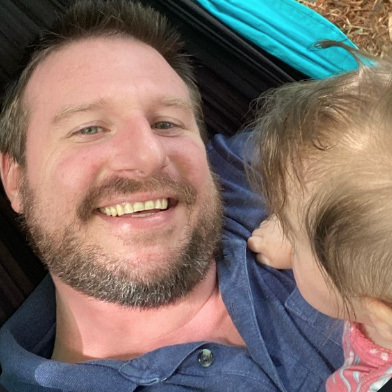
CI Compass invites you to join us for the next webinar in our series "Enabling an Iterative Open Science Transformation to the Geoverse at NOAA with a Federated Data Mesh" featuring Ryan Berkheimer, physical scientist at the National Centers for Environmental Information (NCEI), part of the NOAA National Satellite, Data, and Information Service (NESDIS).
This virtual event will be hosted virtually on Tuesday, April 23, 2024, at 9 a.m. - 10 a.m. PT / 10 - 11 a.m. MT / 11 a.m. - Noon CT / and Noon to 1 p.m. ET.
Abstract:
Recent advancements in scalable computational infrastructure and data management have led to a state where semantic web technology is being increasingly utilized to capture, define, and deliver data in more connected and valuable ways. This trend is demonstrated by the emergence of semantic digital twins pilots, ontological-driven governance, and integrated knowledge networks, such as the National Science Foundation's Open Knowledge Network.
The UN-GGIM Geoverse discussion paper summarized thinking around this state as an opportunity for transitioning to a largely automated and fully integrated virtual reality. It provides guidance on achieving this vision, emphasizing interoperable machine-to-machine communications, federated digital twins, participatory standards, data sovereignty, and democratized wisdom. We present an interoperable knowledge mesh developed at NOAA's National Centers for Environmental Information (NCEI), called the Open Information Stewardship Service (OISS), aimed at integrating diverse NOAA domains.
The OISS framework offers an object-oriented API for accessing a cloud-native knowledge graph, facilitating self-definition of patterns and automated contextualization of records. Utilizing an RDF-encoded dialect of information related concepts defined by the Open Archival Information System (OAIS), the OISS enables users to define processes and generate contextualized records in an event-driven manner. Stored as JSON-LD files, the OISS supports equitable access patterns and fosters the creation of earth system digital twins and foundation models across NOAA.
Author Bio:
Ryan is a physical scientist at the National Centers for Environmental Information (NCEI), part of the NOAA National Satellite, Data, and Information Service (NESDIS). In his current role Ryan is serving as the architect of the Open Information Stewardship Service (OISS), a holistic metadata and workflow orchestration layer (a process oriented 'knowledge mesh') built entirely on serverless technologies designed to facilitate organizational transformation through build out of the NESDIS Common Cloud Framework (NCCF). In 2021, Ryan developed and released the Digital Twin Earth Framework Specification (DTE-FS), which in addition to defining strategy for OISS development has driven conceptual advancements in large agency and interagency planning and development efforts moving toward an interoperable and user driven federated earth systems digital twins. Ryan enjoys working with internal and external NOAA partners to advance interoperability efforts. He is a member of multiple working groups at OGC, CEOS, NSF TIP and CISE, ESIP, and others. His background spans multiple agencies and domains including regulatory hydrology, energy transfer physics, enterprise GIS, systems engineering, and software architecture, and he's always looking for new domains to explore and link.
Originally published at ci-compass.org.